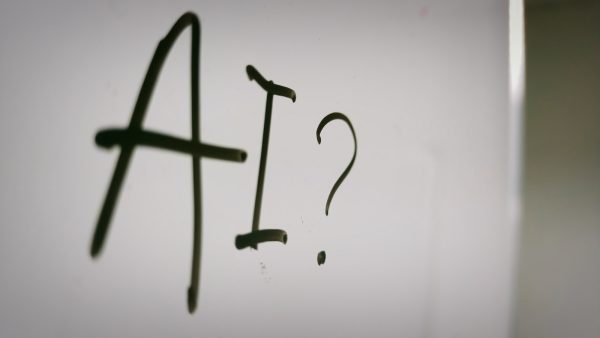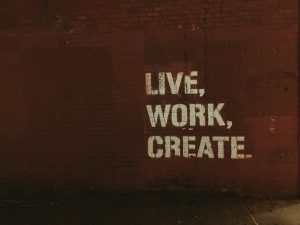Is AI Killing the Economy? Or Just Changing It?
Quick Read TL;DR
Artificial Intelligence is being adopted faster than electricity, PCs, or even the internet. But is it killing jobs, reshaping the economy, or opening up new opportunities? Let’s break down what the latest Anthropic report really says and what it means for your future.AI Adoption Is Moving Faster Than Anything in History

Artificial intelligence isn’t creeping into our lives—it’s sprinting. In the US alone, 40% of employees now use AI at work. That’s double what it was just two years ago. Compare that with electricity, which took decades to reach rural areas, or personal computers, which needed 20 years to land in most homes. AI is breaking every adoption record.
And unlike those older tech waves, AI isn’t just automating existing tasks. It’s creating entirely new categories of work. Coding tasks are exploding while debugging is dropping. Why? Because the tools are simply getting better, and people are spending less time fixing and more time creating.
Where AI Is Being Used Most
Knowledge-Intensive Fields Are Rising
Education, libraries, and research fields are leaning heavily into AI. These areas rely on knowledge synthesis and explanation—the very things AI is great at.
- Educational tasks: up from 9% to 12%
- Science tasks: rising steadily
- Business and financial operations: dropping from 6% to 3%
- Management: dropping from 5% to 3%
So while the “back office” tasks are shrinking in AI use, teaching, research, and coding are surging.
Automation vs Augmentation
When AI first landed, most of us used it as a co-pilot: “Here’s my draft, can you improve it?” That’s augmentation. But the latest data shows a shift. More people are handing AI the wheel: “Write me a full report.” That’s automation.
Directive conversations (AI doing the whole task) are up. Collaborative ones are down. Businesses, in particular, love this. Through APIs, 77% of their use is pure automation, with little human in the loop.
What This Means for Jobs
Here’s the million-dollar question: will AI kill jobs? The short answer—no. It will transform them.
- Workers who adapt and use AI will earn more.
- Entry-level workers are struggling more than experienced ones, especially since late 2022.
- Experienced workers with organizational knowledge + AI skills are in demand.
The old saying nails it: AI won’t replace you, but someone who knows how to use AI will.
For people early in their careers, the trick is learning AI deeply enough to bring value straight away. Companies still need humans to prompt, review, and guide the tools.
AI Around the World
Small Tech-Savvy Countries Lead Per Capita
Israel tops the world in per capita AI use—seven times more than expected. Singapore, Australia, New Zealand, and South Korea follow.
Big Countries Dominate Total Use
The US leads overall with 21.6% of global share, followed by India (7.2%) and Brazil (3.7%). But usage styles differ:
- US: resumes, career docs, relationship guidance
- India & Vietnam: coding dominates
- Brazil: translation and language learning
High-adoption countries tend to use AI collaboratively. Low-adoption countries rely more on automation.
AI in Companies: Still Early Days
Even though AI is everywhere online, only about 1 in 10 companies actually use it. In the information sector, it’s a bit higher (1 in 4). That’s a massive opportunity. If you’re an employee who knows AI, you can bring huge value to your workplace—either as a consultant or as the “AI person” in-house.
The main bottleneck isn’t cost. It’s context. Feeding AI the right data, the right background, the right company-specific knowledge—that’s the real challenge. Which is why people now talk about “context engineering” instead of just prompt engineering.
The Big Economic Picture
Here’s the catch: rich countries and experienced workers are gaining the most. Poorer countries and entry-level workers are at risk of being left behind. If nothing changes, AI could widen global inequality.
But it’s not a done deal. Policy choices, training access, and smart adoption strategies can shape how fair the AI economy turns out to be.
For now, the best bet? Learn the tools. Get good at using AI in your own work. That skill, combined with real-world experience, is likely to make you more valuable, not less.
The Next Year….
AI isn’t killing the economy. It’s reshaping it fast. Some jobs will vanish, but others will grow. The people who win will be those who treat AI as part of their daily toolkit.
The takeaway: don’t wait. Learn how to use AI now either in your job or business. Because while the world debates whether AI is a threat or a saviour, the reality is simple it’s already here, moving faster than anything we’ve ever seen.
Watch Out For: “Can AI do your job?”
Futher Research: https://www.anthropic.com/economic-index & https://youtu.be/biwwQw0248w







